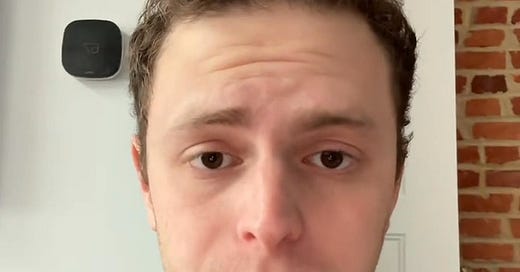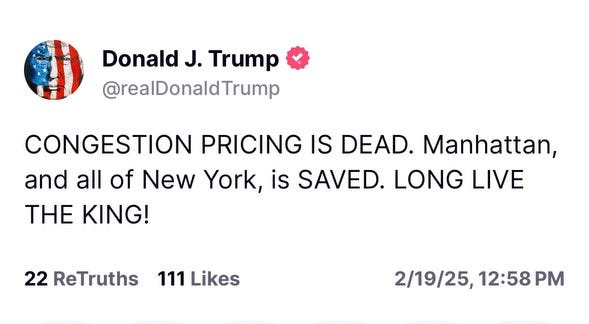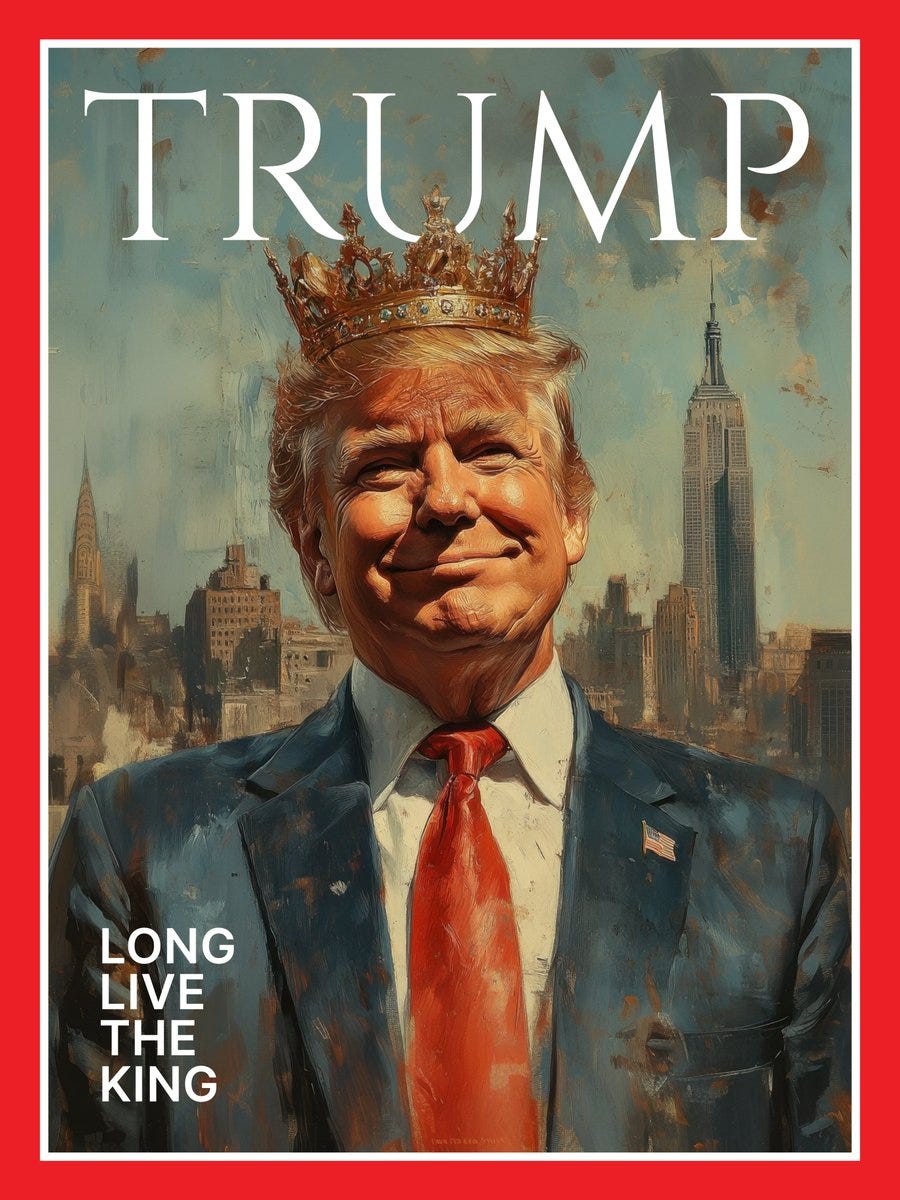In a startling Sunday morning phone interview with NBC News, Donald Trump declined to rule out seeking a third term in office, despite the Constitution’s clear two-term limit on the presidency. Trump, who was sworn in for a second non-consecutive term on January 20, 2025, told NBC that while “it is far too early to think about it,” the possibility of a third term remains open.
Given his comments today, the need for independent media that refuses to normalize this conduct—and is committed to holding political leaders accountable—is more urgent than ever. I’m not afraid of the Trump Administration, and I will continue to pursue the truth, even in the face of retaliation. If you believe in this mission, consider becoming a subscriber today and help support this work:
“There are methods which you could do it,” Trump said, when asked if he had been presented with plans that would allow him to pursue a third term. Pressed to elaborate, he offered a cryptic answer: “There are methods.”
Among the scenarios raised was the possibility of Vice President JD Vance running for president in 2028 and then stepping aside to allow Trump to return to the Oval Office. Trump confirmed that the idea had been discussed, saying, “That’s one” method. When asked to name others, Trump declined, saying only, “No.”
The 22nd Amendment to the U.S. Constitution, ratified in 1951 following Franklin D. Roosevelt’s unprecedented four terms, limits any individual to two elected terms as president. Trump served his first term from 2017 to 2021 and returned to power following the 2024 election.
For a third term to be legal in the United States, the Constitution would have to be amended to repeal or revise the 22nd Amendment. This requires one of two pathways: either two-thirds of both the House and Senate must vote to propose the amendment, followed by ratification from three-fourths (38) of the 50 states; or, alternatively, two-thirds of state legislatures can call for a constitutional convention to propose amendments — a method never yet successfully used. Given the political polarization and the high thresholds involved, such an amendment will likely be impossible.
This isn't the first time Trump has employed monarchical imagery. In February 2025, following the Department of Transportation's decision to halt New York City's congestion pricing program, Trump posted on social media: "CONGESTION PRICING IS DEAD. Manhattan, and all of New York, is SAVED. LONG LIVE THE KING!"
The White House's Instagram account further amplified this sentiment by sharing a doctored Time magazine cover depicting Trump wearing a crown, accompanied by the phrase "Long live the king."
These actions have drawn comparisons to Russian President Vladimir Putin's maneuvers to extend his tenure. In 2020, Putin signed a law allowing him to run for two additional six-year terms, potentially keeping him in power until 2036. This move followed constitutional amendments that effectively reset his previous terms, enabling him to circumvent prior term limits.
Legal scholars and political analysts are scrutinizing President Trump's recent statements and symbolic gestures, expressing concern over potential challenges to constitutional norms and the balance of power. As the 2028 election approaches, the implications of these developments remain uncertain.
Still, the interview adds to a growing list of controversial statements from Trump since returning to the White House. From his moves to centralize intelligence authority under DNI Tulsi Gabbard and CIA Director John Ratcliffe, to his aggressive approach toward media regulation and political dissent, Trump’s second term is already reshaping the contours of executive power in Washington.
For now, the White House has not issued a formal clarification of the president’s remarks. But with Trump’s history of testing—and at times openly defying—political convention, his suggestion of a possible third term is likely to remain a subject of intense debate heading into 2028.

















Share this post